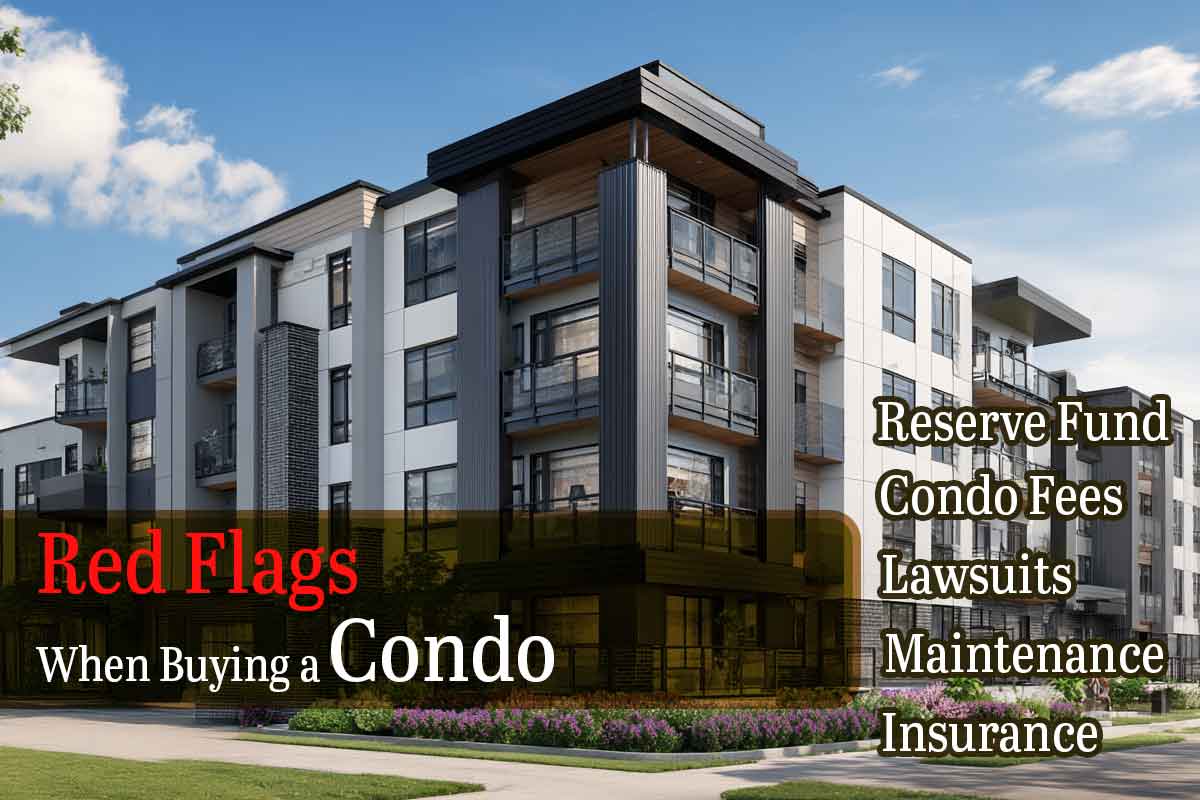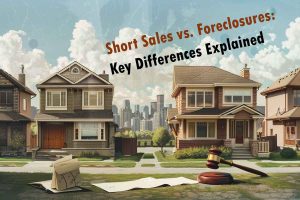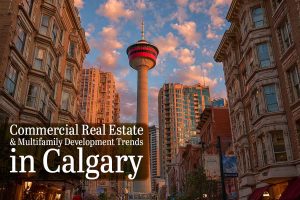Understanding Condo Ownership in Alberta
In Alberta, a condominium is a type of real property ownership governed under the Condominium Property Act (CPA). When you buy a condo, you own your individual unit plus a share in common property—hallways, roofs, parking, elevators, landscaping, and so on. The condominium corporation (run by a board of directors) manages the shared property and enforces rules.
But behind those walls could be hidden issues—financial, legal, or structural—that could cost you thousands down the line.
Major Red Flags to Watch When Buying a Condo in Alberta
Weak Reserve Fund or No Reserve Fund Study
Every Alberta condo must maintain a reserve fund—a savings account for major repairs (roofing, elevators, windows, etc.). Alberta law requires a Reserve Fund Study every five years.
- Reserve fund balance is low or nearly empty.
- No recent reserve fund study.
- Reserve contributions are insufficient.
Tip: Ask for the Reserve Fund Study, Reserve Fund Plan, and current financials. A well-run condo should have detailed forecasts and stable contributions.
High or Frequently Increasing Condo Fees
Condo fees cover insurance, maintenance, and administration. While fees vary based on amenities and building age, frequent or sharp increases may signal poor budgeting or mismanagement.
- Sudden spikes in fees within a 1–2 year window.
- Inconsistent budgeting year over year.
- No clear breakdown of what the fees include.
Tip: Ask for at least two years of audited financials and the current annual budget. Compare fees to similar properties in the area.
Pending or Recent Special Assessments
A special assessment is a one-time charge to unit owners when the reserve fund can’t cover a major repair or emergency.
- Large assessments passed recently or planned in the near future.
- Owners disputing assessments in AGM minutes.
- Unclear project timelines or scope.
Tip: Check AGM and board meeting minutes from the last 2–3 years for signs of financial distress or major upcoming projects.
Poorly Managed or Dysfunctional Condo Boards
The board manages budgets, enforces bylaws, and oversees maintenance. An incompetent or conflict-ridden board can be disastrous.
- High turnover on the board.
- Frequent disputes among board members or with owners.
- Delays in maintenance and communication breakdowns.
Tip: Review meeting minutes and ask your REALTOR® for insight into the board’s reputation.
Ongoing or Threatened Lawsuits
- Active lawsuits involving the developer, board, or contractors.
- Lawsuits filed by or against the condo corporation.
- Legal disputes listed in meeting minutes.
Tip: Ask directly about active litigation and have your lawyer review documents.
Unclear or Overly Restrictive Bylaws
- Vague or outdated bylaws.
- Excessively strict rules.
- Inconsistent enforcement or conflicts among residents.
Tip: Read the bylaws in full and ensure they match your lifestyle.
Undisclosed Building Deficiencies or Poor Maintenance
- Run-down appearance.
- Past water or building envelope issues.
- Frequent maintenance delays.
Tip: Walk through the building, speak to residents, and request inspection reports.
Inadequate Insurance Coverage
- High deductibles passed onto owners.
- Recent premium increases.
- Lack of clarity on coverage.
Tip: Review the corporation’s policy and confirm if you need separate unit insurance.
Units with a High Rental-to-Owner Ratio
- 50% or more investor-owned units.
- High tenant turnover.
- Complaints about renters in minutes.
Tip: Ask for the owner-occupancy ratio; some lenders restrict high-rental buildings.
Lack of Transparency in Disclosure Package
- Missing or incomplete documents.
- Delays in receiving them.
- Outdated or inconsistent information.
Tip: Hire a professional document review service or lawyer with condo expertise.
How to Protect Yourself When Buying a Condo
- Work with a condo-savvy REALTOR®.
- Hire a real estate lawyer familiar with Alberta condominium law.
- Invest in a professional condo document review.
Final Thoughts
Don’t rush. Understand the financial health and governance of the condo corporation before buying.








